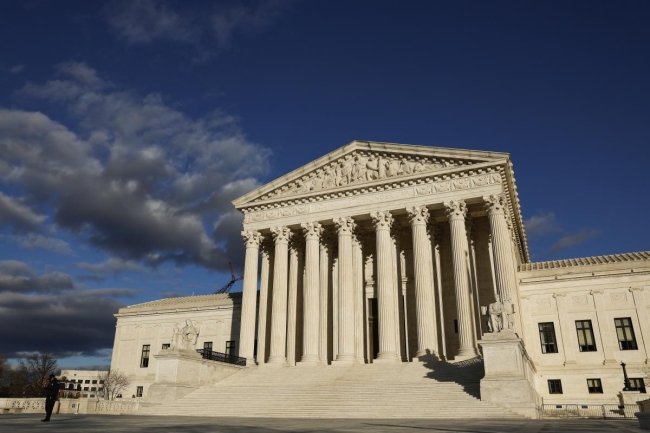During the two-day trial, prosecutors omitted evidence they knew might have cleared Williams. An all-White jury convicted the teenager in under four hours, and sent him to the electric chair, the youngest person put to death in the state’s history.
This week, in the same courthouse where the ruling was passed down 91 years earlier, Ridley’s great-grandson, Sam Lemon, finally won justice for Williams.
A judge overturned Williams’s conviction Monday, the culmination of more than 30 years of work by Lemon to try to win posthumous justice for his great-grandfather and Williams’s family, which was never the same after losing their son.
Before a packed courtroom of Williams’s surviving relatives and other advocates, Delaware County President Judge Kevin F. Kelly granted a motion for a retrial nine decades after the original, a move lawyers involved in the case say has little precedent in the state’s history. Immediately after, Delaware County District Attorney Jack Stollsteimer moved to dismiss the charges, acknowledging they should never have been brought in the first place.
“It’s a stain on our state and it’s a stain on the criminal justice system here in Delaware County,” said Robert Keller, a local attorney who worked with Lemon to reopen the case. “It basically went under the rug … until Sam Lemon and his endeavor to bring light to this case and to try to seek some sort of redemption for his great-grandfather.”
On Oct. 3, 1930, an employee of the Glen Mills School for Boys reported finding the body of his ex-wife Vida Robare in her cottage on campus. Robare, a 34-year-old matron at the school, had been stabbed with an ice pick 47 times, according to court records examined by Lemon.
The violent killing made national headlines, and prosecutors moved quickly to charge Williams, who was serving an indeterminate sentence at Glen Mills for arson and burglary.
His arrest came decades before the Supreme Court guaranteed criminal defendants the right to legal counsel and to be informed of the option to have an attorney with them during interrogations. Investigators questioned Williams five times over 17 days without a lawyer or parent present, and Williams signed three confessions. A photo of Williams with the district attorney following his confessions appears to show the teenager with a black eye. Only after the confessions was Ridley assigned to the case.
During the two-day trial, prosecutors neglected to introduce key pieces of evidence that suggested Williams was not the killer. Never presented to jurors were the bloody handprint of an adult man found at the scene or the fact that Robare had divorced her ex-husband, Fred Robare — the man who was the last to see her alive and reported discovering the body — for “extreme cruelty.” The county’s chief detective told a local newspaper that the killing was committed by a “full grown and strong man,” a finding that was also never mentioned in court.
“I don’t know who did it, but I agree with the detective that it was an adult, that this is a crime of passion,” said Keller, the attorney who worked with Lemon. “It just sounds like a domestic violence case.”
Lemon, an administrator at a local university, said he first learned of the Williams case from his grandmother — Ridley’s daughter — when he was a child. He wondered how his great-grandfather could have lost the case at the height of his five-decade legal career, and why a teenager would commit such a horrible crime.
Living in Ridley’s former home as an adult, he returned to the case, not knowing it would kick off a 30-year research journey. He pored over court and genealogical records, visited the crime scene, and even commissioned a psychological autopsy to examine Williams’s psyche. He wrote a book and spoke publicly about the case, but felt more needed to be done.
The conviction had impacted both the Williams and Ridley families, Lemon said. Ridley faced the disappointment of the local Black community, who felt that the only Black lawyer in town should have been able to win Williams’s freedom. And Williams family was devastated by losing their son — his father became an alcoholic and his mother lost a baby, according to Lemon. They never discussed Alexander again.
Compelled to find some form of legal recourse for both families, he recruited Keller to take the fight to the court system, where the Williams case had long faded into obscurity.
After reviewing the evidence Lemon had gathered, Keller agreed Williams was wrongfully convicted. Still, he said he had no idea how to return the case to court nearly a century after it had been decided.
In 2017, Keller convinced a judge to partially expunge Williams’s record, a largely symbolic move that did not make a ruling on Williams’s guilt or innocence.
“Sam [Lemon] and the family was never satisfied with that,” Keller said. “They were happy that we brought it into a courtroom, but they wanted the actual case to be looked at.”
In 2019, the county elected Stollsteimer as the first Democratic district attorney in its modern history. Keller said he took a chance and approached Stollsteimer, a friend, about the case last year.
Stollsteimer said he read the trial transcript while on vacation and was shocked by the treatment Williams received.
“He was targeted early in the investigation, he was browbeaten into giving a confession,” he said. “This young man, even by 1930s standards, just was railroaded and not given the due process that every criminal defendant in America is entitled to.”
Stollsteimer and Keller agreed to jointly approach Kelly, the president judge, though they doubted Pennsylvania law could provide any recourse so long after Williams’s death. According to Stollsteimer and Keller, it was the judge who did his own research and discovered similarities to the George Stinney Jr. case in South Carolina.
In 1944, Stinney, 14, became the youngest person executed in modern U.S. history for allegedly killing two young White girls. In 2014, a circuit judge there vacated the conviction using a writ of coram nobis, a little-known vestige of English common law that allows a court to overturn a fundamental error.
Kelly urged the two lawyers — who would ordinarily be opponents in court — to jointly file for a new trial by applying coram nobis.
“We had a judge who wasn’t afraid to [acknowledge] this and to recognize that the history of our county had this horrible thing happen, and that it’s important that we bring it to the public’s attention,” Keller said.
On his final day as president judge, Kelly granted the motion, overturning the 91-year-old conviction and fulfilling Lemon’s goal of three decades.
“I always felt it was a task that had been given [to] me because I had a unique perspective and unique insight,” Lemon said. “It was like being a witness to a crime and I couldn’t just look the other way.”
“I feel like a great weight has been lifted off my shoulders, and I did right by Alexander and Vida [Robare] and my great-grandfather,” he added.
clarification
An earlier version of this story included a quote from attorney Robert Keller that he later clarified. The Post has added a parenthetical clarification to the statement, which now reads: “We had a judge who wasn’t afraid to [acknowledge] this and to recognize that the history of our county had this horrible thing happen …” The quote was: “We had a judge who wasn’t afraid to bury this and to recognize that the history of our county had this horrible thing happen …”





More Stories
A New Way To Find A Reputable Car Accident Lawyer
Hakeem Jeffries’s historic election as House Democratic leader, explained
White House Says Immunity for MBS Was Unavoidable. Privately, They Weren’t So Sure.